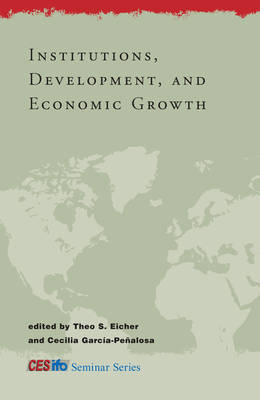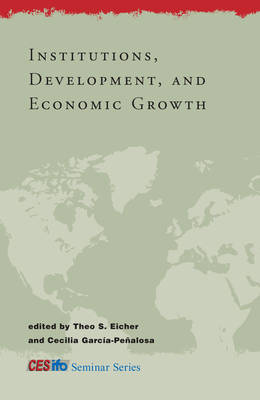
Door een staking bij bpost kan je online bestelling op dit moment iets langer onderweg zijn dan voorzien. Dringend iets nodig? Onze winkels ontvangen jou met open armen!
- Afhalen na 1 uur in een winkel met voorraad
- Gratis thuislevering in België vanaf € 30
- Ruim aanbod met 7 miljoen producten
Door een staking bij bpost kan je online bestelling op dit moment iets langer onderweg zijn dan voorzien. Dringend iets nodig? Onze winkels ontvangen jou met open armen!
- Afhalen na 1 uur in een winkel met voorraad
- Gratis thuislevering in België vanaf € 30
- Ruim aanbod met 7 miljoen producten
Zoeken
€ 42,45
+ 84 punten
Omschrijving
Even minute increases in a country's growth rate can result in dramatic changes in living standards over just one generation. The benefits of growth, however, may not be shared equally. Some may gain less than others, and a fraction of the population may actually be disadvantaged. Recent economic research has found both positive and negative relationships between growth and inequality across nations. The questions raised by these results include: What is the impact on inequality of policies designed to foster growth? Does inequality by itself facilitate or detract from economic growth, and does it amplify or diminish policy effectiveness? This book provides a forum for economists to examine the theoretical, empirical, and policy issues involved in the relationship between growth and inequality. The aim is to develop a framework for determining the role of public policy in enhancing both growth and equality. The diverse range of topics, examined in both developed and developing countries, includes natural resources, taxation, fertility, redistribution, technological change, transition, labor markets, and education. A theme common to all the essays is the importance of education in reducing inequality and increasing growth.
Specificaties
Betrokkenen
- Uitgeverij:
Inhoud
- Aantal bladzijden:
- 342
- Taal:
- Engels
- Reeks:
- Reeksnummer:
- nr. 1
Eigenschappen
- Productcode (EAN):
- 9780262550642
- Verschijningsdatum:
- 1/03/2007
- Uitvoering:
- Paperback
- Formaat:
- Trade paperback (VS)
- Afmetingen:
- 143 mm x 223 mm
- Gewicht:
- 435 g

Alleen bij Standaard Boekhandel
+ 84 punten op je klantenkaart van Standaard Boekhandel
Beoordelingen
We publiceren alleen reviews die voldoen aan de voorwaarden voor reviews. Bekijk onze voorwaarden voor reviews.










